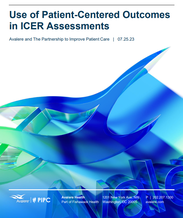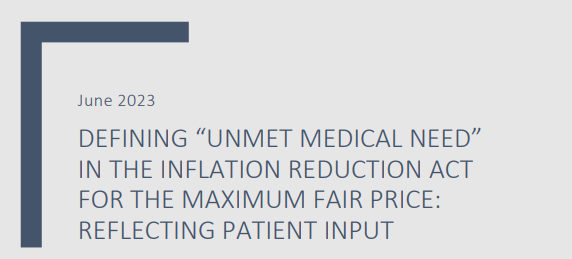Over 75 Leading Patient Groups Join PIPC Comment Letter on ICER 2024 Value Assessment Framework6/30/2023
 PIPC recently submitted a comment letter to the Food and Drug Administration (FDA) offering comments on FDA's proposed revision of guidance on the voluntary use of patient preference information (PPI) in regulatory submissions. The letter encourages FDA to review and incorporate best practices from several leading organizations as it revises its PPI guidance, including the Patient Centered Outcomes Research Institute (PCORI), Innovation and Value Initiative (IVI), and Everylife Foundation for Rare Diseases.  In a letter to the Institute for Clinical and Economic Review (ICER), the Partnership to Improve Patient Care (PIPC) submitted comments on ICER's assessment of gene therapies for Sickle Cell Disease (SCD). |
Topics
All
Archives
April 2024
|


